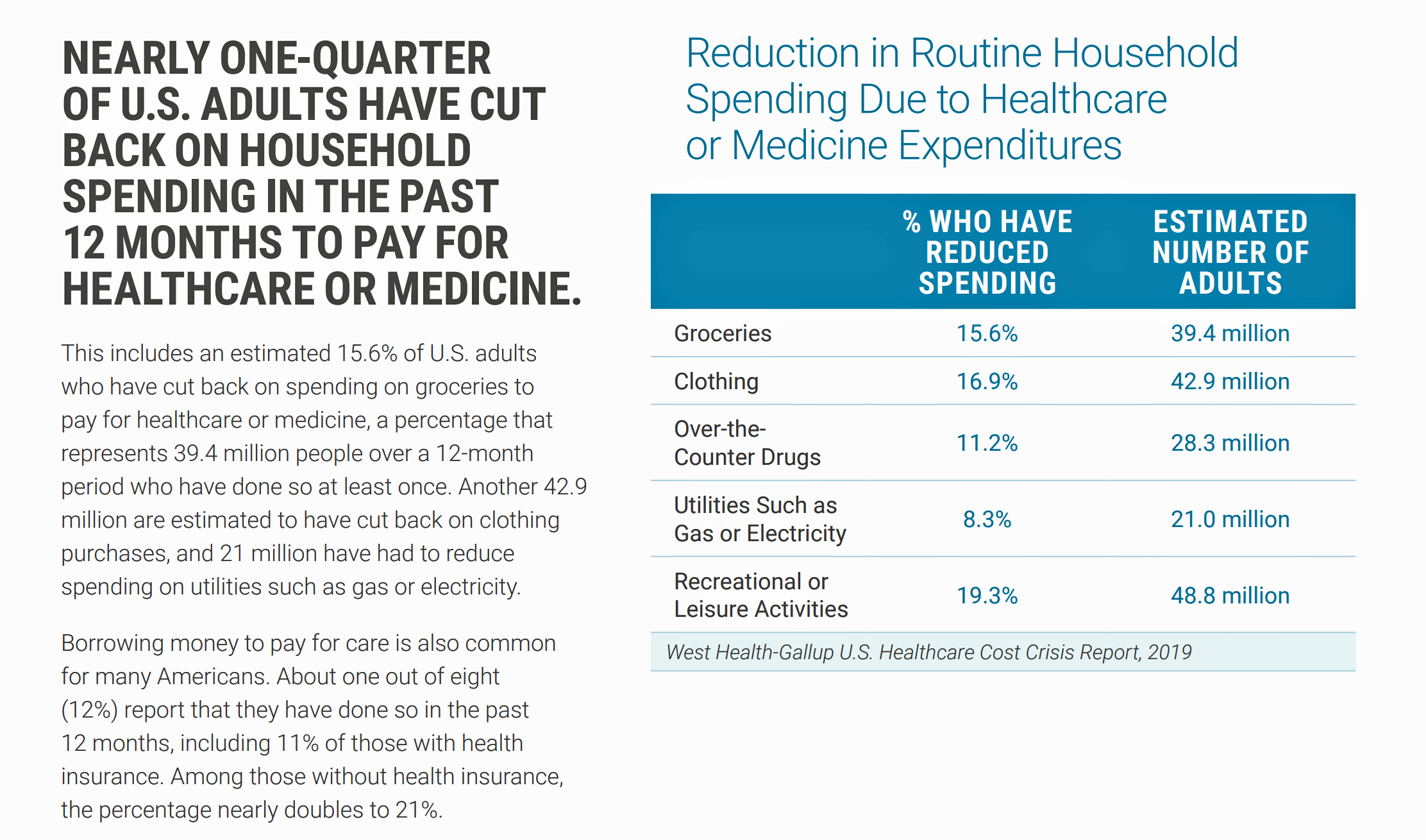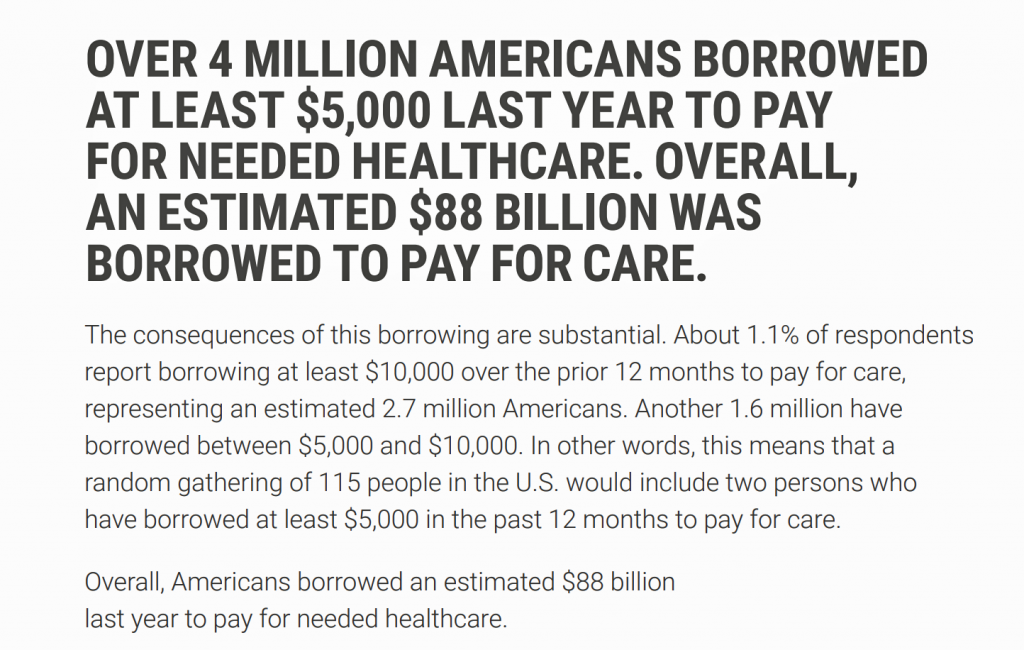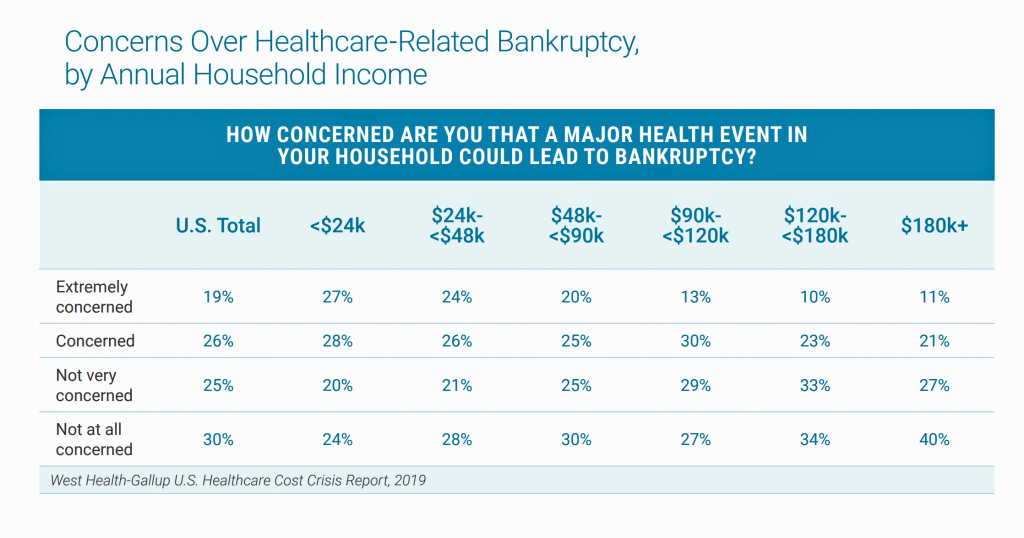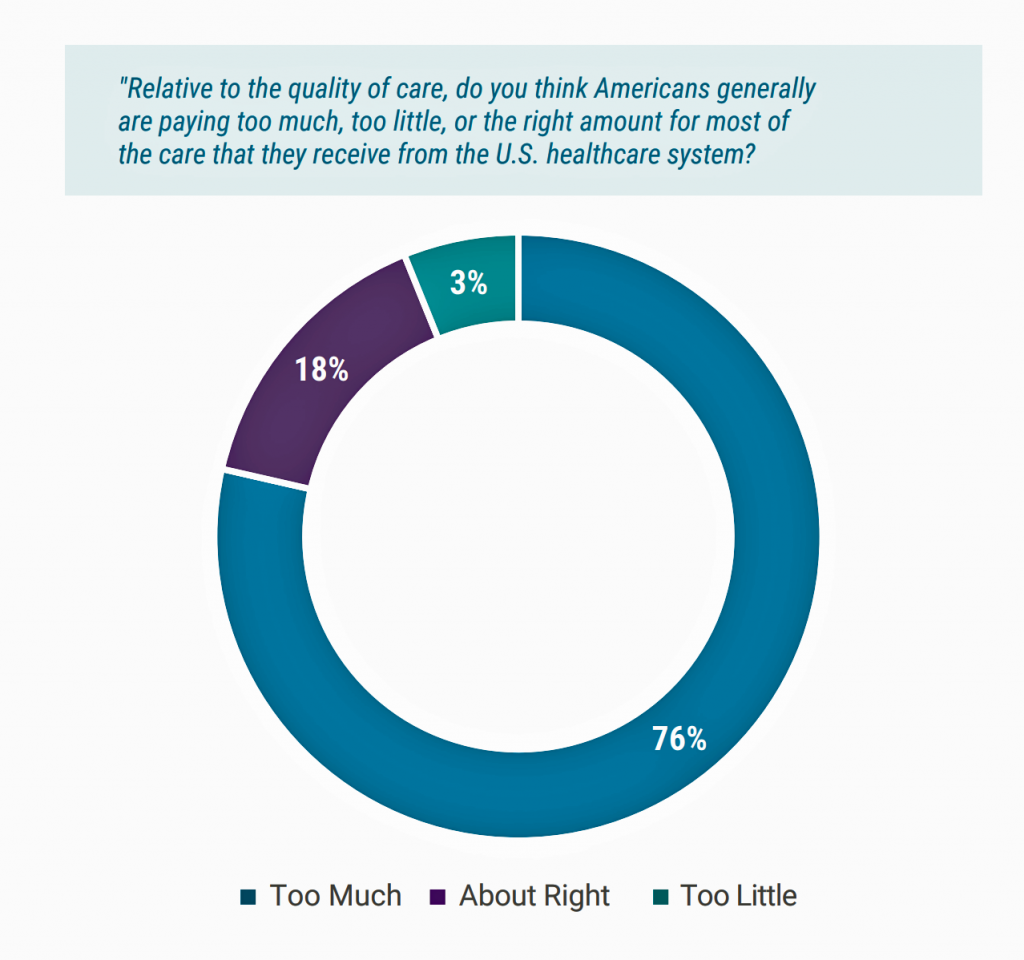 Spending on medical care costs crowded out other household spending for millions of Americans in 2018, based on The U.S. Healthcare Cost Crisis, a survey from West Health and Gallup.
Spending on medical care costs crowded out other household spending for millions of Americans in 2018, based on The U.S. Healthcare Cost Crisis, a survey from West Health and Gallup.
Gallup polled 3,537 U.S. adults 18 and over in January and February 2019.
One in three Americans overall are concerned they won’t be able to pay for health care services or prescription drugs: that includes 35% of people who are insured, and 63% of those who do not have insurance.
 Americans borrowed $88 billion in 2018 to pay for health care spending, West Health and Gallup estimated. 27 million Americans — 1 in 100 people — each borrowed at least $10,000 to pay for medical care.
Americans borrowed $88 billion in 2018 to pay for health care spending, West Health and Gallup estimated. 27 million Americans — 1 in 100 people — each borrowed at least $10,000 to pay for medical care.
As a result, 45% of Americans are concerned that a major health event in their homes could lead to bankruptcy. While over 50% of families earning under $48,000 a year are concerned about a finances, one-third of high-income families, earning over $120,000 a year, are concerned about the possibility of a medical bankruptcy.

And it’s not only our own families’ financial health that concerns us when it comes to health care costs eroding the household budget. Three in four Americans are concerned that health care costs will result in significant, lasting damage on the U.S. economy.
Across political party, majorities of U.S. adults also lack confidence in the government’s ability to find a bipartisan solution to address and solve the challenge of rising health care costs.
Americans seem to have a sense of civic duty for healthcare costs considering the survey found that 19% of people were satisfied with the U.S. health care system for themselves and their families; but 38% of U.S. adults were satisfied with the health system for fellow citizens.
 Health Populi’s Hot Points: Fully 3 in 4 Americans said they are spending too much money for the quality of care they receive from the U.S. health system, the last chart notes.
Health Populi’s Hot Points: Fully 3 in 4 Americans said they are spending too much money for the quality of care they receive from the U.S. health system, the last chart notes.
Consider this household health care ROI – return-on-investment. Pay more than the residents of any other country on Earth for health care, and get less in terms of outcomes and service levels for many key medical metrics: infant and maternal mortality, access to primary care, and those growing deaths of despair from suicide, accident and overdose.
The West Health-Gallup study paints a portrait of Americans stressed due to medical costs, even at the highest levels of income.
This study looked at Americans’ views on both health care services and prescription drugs. It is important to note that the pharmaceutical industry has gotten so much of the U.S. public’s negative focus on high costs, especially animated by the hockey-stick-growth of insulin prices and EpiPens, costs for Hep C drugs, and new cancer therapies.
The West Health-Gallup study encompasses the health care services supply side, too, beyond medications.
With that in mind, I’ll remind Health Populi readers that the latest Edelman Trust Barometer saw a dramatic drop in trust between American health consumers and hospitals in this year’s 2019 research. Take note of this, health care providers: patients-as-payors have begun to bundle hospitals into the health care cost challenge they now face due to surprise bills after discharge, lack of knowledge about who’s an in-network provider, little advance price transparency in local markets, and (relatively) low levels of patient/consumer experience.
The post Medical Costs Are Consuming Americans’ Financial Health appeared first on HealthPopuli.com.
Medical Costs Are Consuming Americans’ Financial Health posted first on http://dentistfortworth.blogspot.com
No comments:
Post a Comment